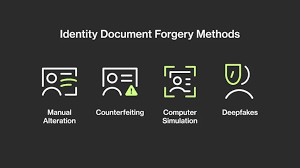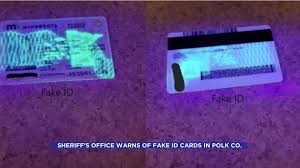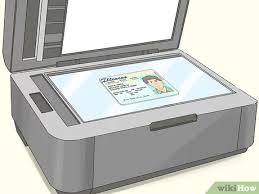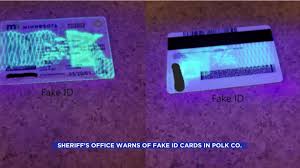fake Louisiana ID
Table of Contents
- Introduction: Why Louisiana?
- The Market for Fake IDs: An Overview
- What Makes a Fake Louisiana ID Unique?
- Product Features: Craftsmanship, Security Elements, and Realism
- Target Audience: Who Buys Fake Louisiana IDs and Why?
- Market Analysis: Supply, Demand, and Regional Trends
- The Legal Landscape: Risks and Penalties
- How Fake IDs are Sold: Online Platforms and Channels
- The Psychology Behind Buying Fake IDs
- Ethical and Social Implications
- How to Identify a High-Quality Fake Louisiana ID
- Conclusion: The Future of the Fake ID Market
1. Introduction: Why Louisiana?
The appeal of fake Louisiana IDs lies in the state’s unique attributes. Louisiana has a distinct blend of cultural, geographical, and demographic features that make it a compelling choice for those seeking a fake identity. With a vibrant nightlife scene and lenient alcohol laws in certain areas, the state draws significant attention from tourists and underage individuals looking to bypass age restrictions. Moreover, the state ID design offers intricate details that can be challenging but rewarding for counterfeiters to replicate, creating a niche demand for high-quality fakes.
2. The Market for Fake IDs: An Overview
The fake ID market operates in a gray area between legality and demand, driven by young individuals seeking to circumvent restrictions on age-limited activities like drinking, clubbing, or gambling. While Louisiana IDs are not as commonly replicated as those from states like California or New York, the distinctiveness of a Louisiana ID means it can offer an edge in places outside the state, where bouncers and bartenders may be less familiar with its design.
This niche market thrives on anonymity, with vendors often operating on the dark web or through encrypted communication platforms. In the broader landscape of counterfeit identification, Louisiana IDs occupy a mid-tier position: not as overproduced as more popular states but still valuable to the discerning buyer.
3. What Makes a Fake Louisiana ID Unique?
The appeal of a fake Louisiana ID comes from several factors:
- Design Elements: Louisiana IDs feature intricate state seals, holograms, and UV markings, which make them visually appealing and challenging to replicate.
- Cultural Symbolism: The association with Mardi Gras, jazz, and nightlife adds a layer of allure to the ID, especially for young people seeking a fun or rebellious identity.
- Under the Radar: Since it’s not among the most popular fake IDs (e.g., California or New York), it draws less scrutiny in states far from Louisiana.
These elements create a sense of exclusivity and make the fake Louisiana ID desirable for individuals who want something less obvious but still effective.
4. Product Features: Craftsmanship, Security Elements, and Realism
A high-quality fake Louisiana ID replicates the state’s official ID with remarkable precision. Some essential features include:
- Holograms and UV Ink: Authentic IDs include reflective holographic elements and ultraviolet ink visible only under blacklight. High-end counterfeiters ensure these details are accurately reproduced.
- Laser-Engraved Information: Louisiana state IDs feature raised text that can be felt to the touch, requiring advanced printing technology to mimic.
- Microprinting and Barcode Scanning: Small text and scannable barcodes are essential to creating a usable fake ID. Buyers look for IDs that can pass a barcode scanner without raising red flags.
Vendors who invest in these high-quality materials and technology set themselves apart, commanding higher prices and building a reputation for reliability.
5. Target Audience: Who Buys Fake Louisiana IDs and Why?
The primary audience for fake Louisiana IDs consists of:
- Underage Drinkers: Young people seeking access to alcohol, bars, and clubs.
- College Students: Many college students, particularly in states with strict alcohol laws, find fake IDs useful for social activities.
- Tourists: Some visitors to Louisiana prefer to blend in with locals, using fake IDs to bypass certain restrictions.
- Individuals with Privacy Concerns: People wishing to avoid being tracked or identified may purchase fake IDs for anonymity.
Each audience has its own motivations, ranging from convenience to privacy, and vendors often tailor their marketing strategies accordingly.
6. Market Analysis: Supply, Demand, and Regional Trends
The market for fake IDs is subject to fluctuations based on legal changes, enforcement efforts, and technological advancements. Key trends include:
- Rising Demand: As states tighten alcohol laws, the demand for fake IDs continues to rise among underage individuals.
- Digital Platforms: Online storefronts, dark web marketplaces, and encrypted messaging apps have become primary sales channels.
- Regional Variations: Demand for Louisiana IDs is higher in states with strict alcohol laws, where local authorities are less familiar with out-of-state IDs.
The market remains competitive, with multiple vendors offering varying levels of quality. Reputation and customer reviews play a significant role in vendor selection.
7. The Legal Landscape: Risks and Penalties
Using or producing fake IDs is illegal in most jurisdictions, with penalties ranging from fines to imprisonment. Specific risks include:
- Possession Charges: In Louisiana, possessing a fake ID can result in a misdemeanor, leading to fines or community service.
- Federal Charges: Producing counterfeit identification can attract severe federal penalties, including imprisonment.
- Venue Blacklists: Bars and clubs that catch fake IDs may ban individuals, creating social consequences beyond legal penalties.
Despite the risks, the allure of freedom and access often outweighs the potential consequences for many young buyers.
8. How Fake IDs are Sold: Online Platforms and Channels
Most transactions for fake IDs occur online, with vendors advertising their products through:
- Dark Web Marketplaces: These platforms offer anonymity and protection for both buyers and sellers.
- Social Media: Some vendors leverage private groups on platforms like Instagram or Snapchat to connect with buyers.
- Referral Networks: Reputation matters, and many vendors rely on word-of-mouth referrals to build trust.
These channels enable vendors to reach a wide audience while maintaining a degree of anonymity.
9. The Psychology Behind Buying Fake IDs
For many young people, purchasing a fake ID represents more than just a means to buy alcohol; it’s an act of rebellion, independence, and experimentation. The thrill of getting away with something forbidden adds to the appeal. Additionally, peer pressure plays a significant role, as many teenagers don’t want to feel left out of social activities.
10. Ethical and Social Implications
The use of fake IDs raises ethical questions about underage drinking, personal responsibility, and the normalization of dishonest behavior. On a societal level, it contributes to challenges for businesses and law enforcement, complicating efforts to enforce age restrictions.
At the same time, the widespread demand for fake IDs points to deeper issues, such as the rigid nature of alcohol laws and the cultural importance placed on drinking.
11. How to Identify a High-Quality Fake Louisiana ID
Spotting a high-quality fake requires careful attention to detail. Bouncers and law enforcement officials are trained to look for:
- Inconsistent Fonts or Spacing: Subtle mistakes in typography can reveal a fake.
- Hologram and UV Test: Shining a blacklight on the ID can expose missing or incorrect elements.
- Barcode Scanning: If the barcode doesn’t match the information on the card, it’s likely a fake.
Buyers looking for high-quality fakes prioritize vendors who can replicate these details convincingly.
12. Conclusion: The Future of the Fake ID Market
As technology evolves, so too does the quality of fake IDs. Vendors are continually improving their products to stay ahead of detection methods, and buyers remain eager to access the freedom these IDs provide. However, increased enforcement efforts and the development of new security technologies may eventually curtail the market’s growth.
The future of the fake ID market lies in its ability to adapt. Whether through new production techniques or more discreet sales channels, the demand for fake identities is unlikely to disappear entirely. Ultimately, fake Louisiana IDs will remain part of a broader conversation about youth culture, legality, and personal freedom.
 fake Utah ID
fake Utah ID
 fake Florida ID
fake Florida ID
 where do people get fake ids
where do people get fake ids
 West Virginia Fake ID
West Virginia Fake ID